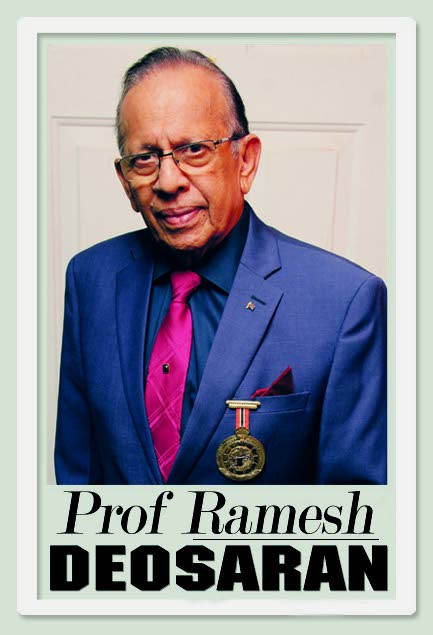Who is really independent?

The matter of who or which institution is independent or not has recently crashed into public discourse, but still locked down with political uncertainties.
For example, the Police Service Commission (PSC), like other service commissions, has been strongly deemed to be “independent.” In public discourse and court rulings, this largely means “free from political influence,” which provokes me to ask what is “political interference?”
The Prime Minister tactfully differentiates between “interfacing” and “interfering.” The UNC Opposition saw this as an excuse.
Look, I am just asking because if we intend to go up the road to constitutional reform, a serious approach would have to answer such questions.
In a recent case before Justice Nadia Kangaloo, about 16 distinguished lawyers had opposing views in dealing with matters relating to the “independence” of the President, PSC and even the Parliament.
As adviser to the common man, the dictionary (Oxford) defines “independent” as: “Not depending on authority or control,” “not depending on another person for one’s opinion or livelihood,” “not belonging to or supported by a party,” “unwilling to be under an obligation to others.”
Further, Black’s Law Dictionary defines “independent” as “not subject to control, restriction, modification or limitation from a given outside source.”
The word “given” is crucial here. In fact, civic and business organisations or public institutions can frame their rules to define “independent” to suit their own operational purpose but within section four of the Constitution, which protects basic freedoms such as speech, movement, religion, etc, unless the Constitution itself provides exceptions.
You see, what is swirling at the back of my mind is the fact that we are a democracy with fair and free elections and a PM and cabinet constitutionally responsible for “the peace, order and good government” of the country, and who “shall have general direction and control of the government and be collectively responsible to Parliament.” How then can we have a political system which demands such political responsibilities and yet have parallel institutions whose functions directly affect “the peace, order and good government” of the country but which are "independent?” Why?
The famous Privy Council words ”insulation from political patronage” (Endell vs AG) resonate today mainly because party politics has helped to pollute fairness and merit, making it difficult to apply democratic theory. With the PSC as leverage, we need to revisit our 1976 constitution to find a workable but just balance.
The Constitution states: “Nine (senators) shall be appointed by the President in his discretion from outstanding persons from economic or social or community organisation and other major fields of endeavour.” How “independent” can these senators be, such that if a matter comes to the Senate for a vote for or against the president, should they vote or abstain?
Who is really “independent?” Though elected by the people, how “independent” are PNM MPs from the prime minister? Or Opposition MPs from the opposition leader? Having been nominated by government and elected by majority of an Electoral College, the President is expected to be “independent” from “political influence.” From the Cabinet? Can he or she refuse Cabinet orders? As president, the late ANR Robinson “independently” once refused to swear in people proposed by PM Basdeo Panday as ministers who had lost the election. President Robinson eventually gave up.
When Mr Robinson became prime minister in the National Alliance for Reconstruction (NAR) government, outgoing president, Sir Ellis Clarke, against PM Robinson’s advice, appointed Mr Cecil Kelsick as chief justice. Sir Ellis wasn’t supported by Mr Robinson as president.
There was big noise about “no debate” from Opposition Leader Kamla Persad-Bissessar’s motion to impeach the President. It was pointed out the rules did not allow debate, but if two-third vote support was obtained in a joint sitting, a tribunal would be established. This tribunal will be chaired by the Chief Justice and four judges “independently” appointed by him, to ascertain the facts “independently” and report. The Constitution states: “The Chief Justice shall be appointed by the President after consultation with the Prime Minister and the Leader of the Opposition.”
If the argument is that since the President appoints the independent senators, they owe an obligation or at least would be caught in an “apparent bias” squeeze. Could this view also apply to the Chief Justice?
Who really is or can be “independent?”


Comments
"Who is really independent?"